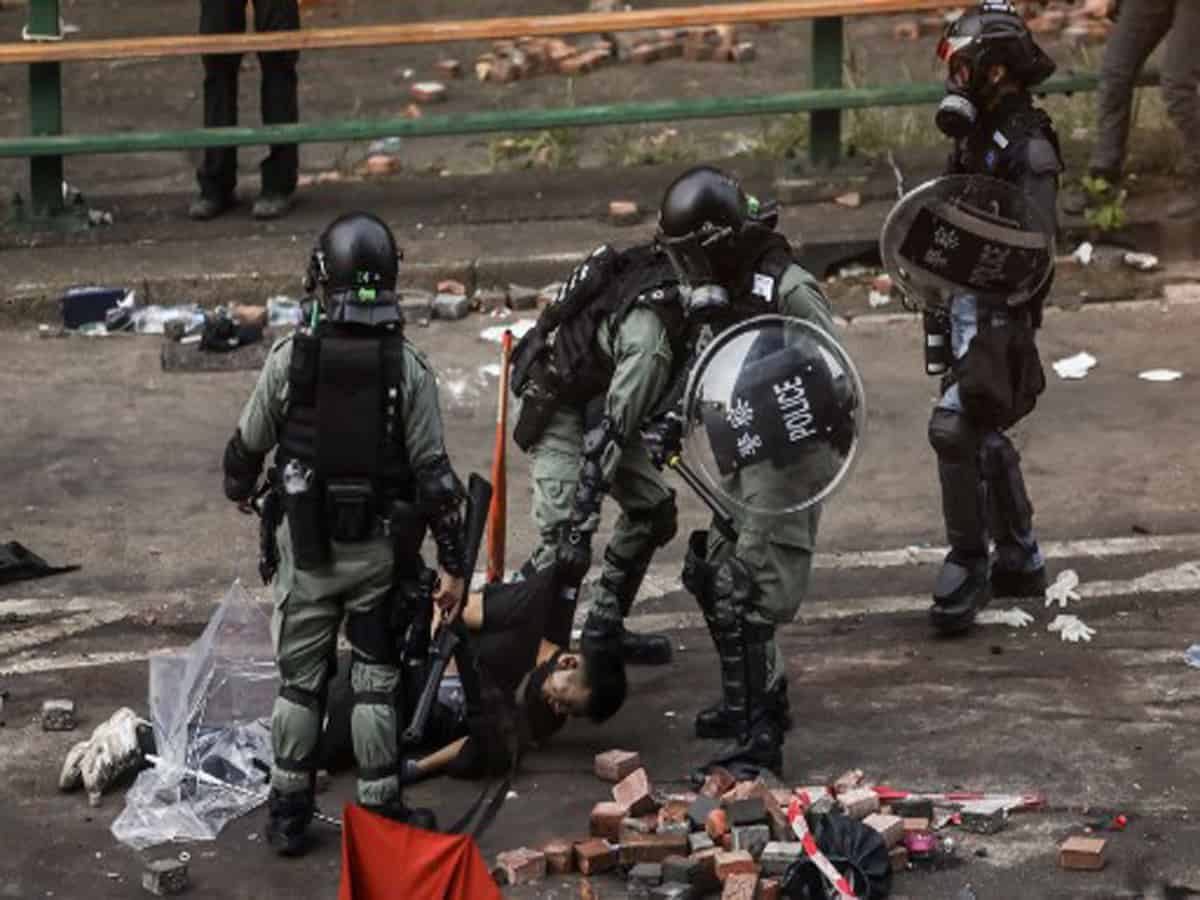Hong Kong: Hong Kong police arrested about 400 people on charges of illegal assembly and possession of arms during a New Year anti-government march, which organizers said was attended by more than a million people.
Hong Kongers came out en masse on Wednesday for the march organizers had to eventually cancel following police orders, leading to clashes between officers and the more radical protesters, reports Efe news.
Although permission for the demonstration had been granted, police urged organizers – the Civil Human Rights Front – to end the procession three hours after it started, arguing some protesters had begun throwing stones and Molotov cocktails and burning shops and banks.
Trouble started when activists vandalized a branch of banking giant HSBC, which led to police cracking down on them with teargas, local media outlets reported.
Other protesters in the front columns of the march formed human chains, seemingly unwilling to go away, leading to further clashes with police that ended in arrests.
Away from the clashes, thousands marched peacefully to urge citizens of the former British colony to keep protests alive in 2020 and remind the government of the pro-democracy movement’s demands through placards and slogans.
Demands include that direct universal suffrage to elect a chief executive and other representatives be granted, that almost 6,000 detainees be freed, that protests not to be considered unrest and that an independent investigation be launched into alleged police brutality.
Demonstrations in Hong Kong began in June 2019 following a controversial extradition bill already withdrawn by the government, but have mutated into a movement seeking to improve Hong Kong’s democratic mechanisms and safeguard the region’s partial autonomy from Beijing.
Some demonstrators have opted for more radical tactics than peaceful civil disobedience and violent clashes with police have been frequent.
Months of protests have plunged Hong Kong’s economy into recession for the first time in a decade, having contracted by 2.9 per cent in the third quarter, due to falling imports and exports, retail sales and declining tourism.

